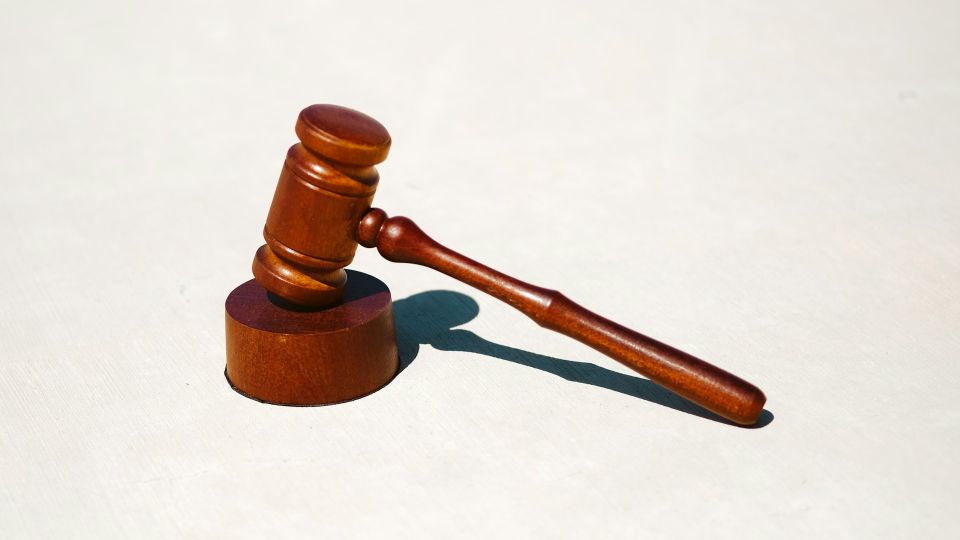May 14, 2024
HONG KONG – Hong Kong media tycoon Jimmy Lai’s national security trial entered a new phase on May 13, with the defence set to take centre stage after the prosecution’s key witnesses finished testifying the previous week.
The trial, which began on Dec 18, 2023, was at first expected to be wrapped up by mid-May but is now likely to extend into June.
Until now, the trial has mostly heard the testimonies and cross-examinations of the prosecution’s six witnesses.
As Lai’s lawyers prepare to mount their defence, they have made known their plans to have at least five police officers testify, as well as to play in court 35 hours of an interview show hosted by Lai.
On May 13, Lai’s legal team applied to call the prosecution’s first witness, former Apple Daily publisher Cheung Kim Hung, back to the stand on the grounds that meeting records he mentioned in his testimony were not made known to the defence until his cross-examination in January.
The application was adjourned until May 14.
Diplomats and civil society groups are closely watching the developments in the landmark trial of Lai, a prominent pro-democracy advocate and long-time critic of China’s Communist Party.
Lai, 76, the founder of the now-defunct Apple Daily newspaper, is the highest-profile figure to face prosecution so far under a Beijing-imposed national security law.
More than 150 people have been charged under the law since it came into effect in June 2020 and more than 70 have been convicted to date.
Western powers see the law as evidence of Beijing’s growing reach into Hong Kong’s political and legal systems despite it having promised the city substantial autonomy under the “one country, two systems” framework.
These countries regard Lai’s trial as a key test of the city’s judicial independence.
The United States’ Consul General in Hong Kong, Mr Gregory May, during a US think tank’s online seminar on May 9 called on the city’s officials to release Lai and other political detainees, drawing condemnation from China’s foreign ministry office in Hong Kong.
A Hong Kong appeal court in late April upheld a move to block Lai from challenging a decision to ban a British lawyer from participating in the trial.
The developments reflect the sensitivities involved in foreign individuals and agencies’ attempts to take part in, monitor or criticise Hong Kong’s legal process.
So far, the prosecution in Lai’s trial has presented six witnesses to the stand.
On May 10, it read out reports by City University legal scholar Professor Wang Guiguo, which argued that the United States imposed “severe” sanctions on Hong Kong and mainland Chinese officials based on “highly subjective assessments” of how they had contributed to the perceived erosion of Hong Kong’s autonomy.
In hearings prior to that, one of the prosecution witnesses, paralegal Wayland Chan, testified that Lai was prepared to provide “all kinds of help” to pro-democracy publicity campaigns aimed at putting pressure on the Hong Kong government.
He alleged that the tycoon had agreed to lend as much as HK$5 million (S$870,000) – without interest or guarantees – to a group of anonymous activists of which Chan was a part.
Lai, through firms he owned, also allegedly made advance payments of HK$1.5 million on their behalf for advertisements placed in foreign newspapers including The Washington Post and The Guardian, the court heard.
Among the prosecution witnesses were Apple Daily staff – former publisher Cheung, former associate publisher Chan Pui Man and former editorial writer Yeung Ching Kee, who had each pleaded guilty to a foreign collusion charge.
In hearings in January, Cheung described Lai as Apple Daily’s “ultimate decision maker” who radicalised the tabloid after meeting top US officials in July 2019.
In February, Chan Pui Man testified that shortly before the 2019 mass anti-government protests broke out in Hong Kong in June, Lai instructed her to devise ways to urge people to take to the streets against a now-scrapped extradition Bill.
“There’s no other way to deal with (the Communist Party of China) now,” Lai told her in a text message, the court heard.
In March, Yeung told the court that Lai envisioned Apple Daily’s English edition as helping US readers understand Hong Kong’s situation so that they could pressure Washington to act.
The prosecution witnesses’ testimonies have shaped the case against Lai, demonstrating his alleged key role in orchestrating a global campaign to nudge the international community – in particular the United States – into action against mainland China and Hong Kong.
Lai, accused of endangering China’s national security, has pleaded not guilty to two charges of conspiring to collude with foreign forces and a third charge of conspiring to publish seditious material. He faces life imprisonment if convicted.
Lai was arrested in August 2020, and Apple Daily ceased publication nearly a year later in June 2021.
The Hong Kong tycoon, who also holds British citizenship, has been held in custody for more than 1,000 days since his bail was revoked in December 2020.
Three judges handpicked by Chief Executive John Lee are presiding over the trial in place of a jury.
The US and Britain, among other Western countries, have described Lai’s case as being politically motivated. Mainland Chinese and Hong Kong officials say he is ensured a fair trial.


